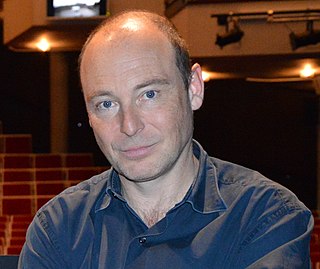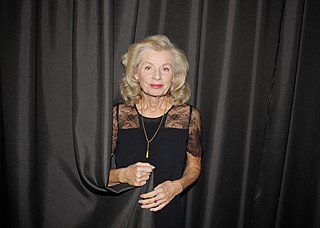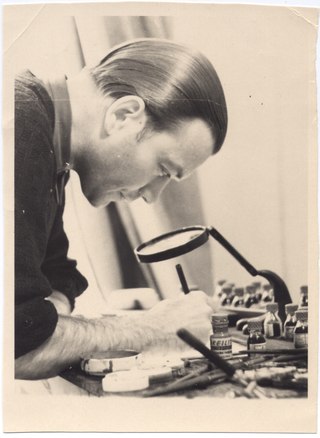
Dortmund is the third-largest city in North Rhine-Westphalia, after Cologne and Düsseldorf, and the ninth-largest city in Germany. With a population of 609,000 inhabitants, it is the largest city of the Ruhr as well as the largest city of Westphalia. It lies on the Emscher and Ruhr rivers in the Rhine-Ruhr Metropolitan Region and is considered the administrative, commercial, and cultural centre of the eastern Ruhr. Dortmund is the second-largest city in the Low German dialect area, after Hamburg.

The Nordwestdeutsche Philharmonie is a German symphony orchestra based in Herford. It was founded in 1950 and, along with Philharmonie Südwestfalen and Landesjugendorchester NRW, is one of the 'official' orchestras (Landesorchester) of the state of North Rhine-Westphalia. The orchestra has been shaped by conductors such as Wilhelm Schüchter, Hermann Scherchen and Andris Nelsons. They have regularly served several cities in northwest Germany, and toured internationally to halls such as Berliner Philharmonie, Tonhalle Zürich and Großes Festspielhaus in Salzburg, also to the U.S. and Japan.

Wilhelm Schüchter was a German conductor. He was Generalmusikdirektor in Dortmund from 1962 until his death. He opened the new opera house in 1966 with Der Rosenkavalier by Richard Strauss, and conducted the world premiere of the opera Eli by Walter Steffens after the drama of Nelly Sachs in 1967. He left a legacy of opera recordings, especially of excerpts sung in German.

Theater Dortmund is a theatrical organization that produces operas, musicals, ballets, plays, and concerts in Dortmund, Germany. It was founded as the Stadttheater Dortmund in 1904. Supported by the German Government, the organization owns and operates several performance spaces.

The Dortmunder Philharmoniker are a German symphony orchestra based in Dortmund. The orchestra of the Theater Dortmund performs opera in the Opernhaus Dortmund and concert in the Konzerthaus Dortmund. The orchestra was founded in 1887 and has been shaped by conductors such as Wilhelm Schüchter, Marek Janowski, Moshe Atzmon and Jac van Steen.
Christiane Kohl is a German soprano in opera and concert.

Opernwelt is a monthly German magazine for opera, operetta and ballet. It includes news about current performances, portraits of composers and performers, articles about opera houses, performance spaces, and contemporary and historical subjects from the world of opera and classical music. It reviews recordings and books and publishes monthly schedules of German and international opera houses. The magazine's website offers full text search for past issues. A year book is published every October.

Jens-Daniel Herzog is a German stage director for play and opera, and a theater manager.

Reinhard Febel is a German composer, notable for his operas. He is also a music theorist and a university professor at the Hochschule für Musik, Theater und Medien Hannover and the Mozarteum.
Hans Wallat was a German conductor, GMD in Bremen, at the Nationaltheater Mannheim, Theater Dortmund and Deutsche Oper am Rhein. A specialist for the stage works of Richard Wagner, he appeared at the Bayreuth Festival and internationally.

An allem ist Hütchen schuld!, Op. 11, is an opera in German in three acts composed by Siegfried Wagner in 1914/15 to his own libretto. It is described as a Märchenspiel or fairy-tale play. It premiered on 6 December 1917 at the Ccourt Theatre Stuttgart.

Michael Hofstetter is a German conductor and academic. He was chief conductor of the festival Ludwigsburger Schlossfestspiele from 2005 to 2012, and has been Generalmusikdirektor of Gießen since. He has worked internationally at notable opera houses and festivals. He is regarded as an expert of historically informed performance, who has rediscovered and recorded rarely performed operas.
Günther Morbach was a German classical bass in opera and concert. He performed major roles at German opera houses and on international tours.
Liselotte Hammes is a German operatic soprano and academic voice teacher. While based at the Cologne Opera, she performed internationally. One of her signature roles is Sophie in Der Rosenkavalier by Richard Strauss, which she performed at the Glyndebourne Festival, among other European opera houses.
Jeff Martin is an American operatic tenor who made a career based in Germany, singing at international opera houses and concert halls. Focused on character roles, he has appeared as Mime in Wagner's Der Ring des Nibelungen and Herod in Salome by Richard Strauss, and appeared in several world premieres.
Anton Marik is an Austrian conductor who made a career with orchestras and choirs in Germany.

Christine Mielitz is a German theatre and opera director.

Hainer Hill was a German scenic designer, costume designer, painter, graphic artist and theatre photographer who was based in Berlin and worked internationally. After studying painting in Frankfurt, he worked at the Oper Frankfurt, assisting Caspar Neher. Together they moved to Brecht's Berliner Ensemble where Hill created an iconic stage for Mutter Courage and took hundreds of scene photographs now archived at the Akademie der Künste. When the Berlin Wall was erected, Hill, who lived in the West and had worked in the East, began to work freelance, including at the Royal Opera House. In 1966 he became director of scenery (Ausstattunggsleiter) at Opernhaus Dortmund, and there he created the stage for the world premiere of Eli by Walter Steffens, which was followed by 45 other productions. Hill is best remembered for his focus on light projection.
Eli, Op. 7, is a German-language opera in three acts with music by Walter Steffens to a libretto based on a play by Nelly Sachs. The world premiere was in 1967 at the Opernhaus Dortmund.

Claus Guth is a German theatre director, focused on opera. He has directed operas at major houses and festivals, including world premieres such as works of the Munich Biennale, and Berio's Cronaca del luogo at the Salzburg Festival in 1999. Guth is particularly known for his opera productions of the works of Richard Wagner and Richard Strauss. He has received two Faust awards, for Daphne by Richard Strauss in 2010, and for Debussy's Pelléas et Mélisande, both at the Oper Frankfurt.














